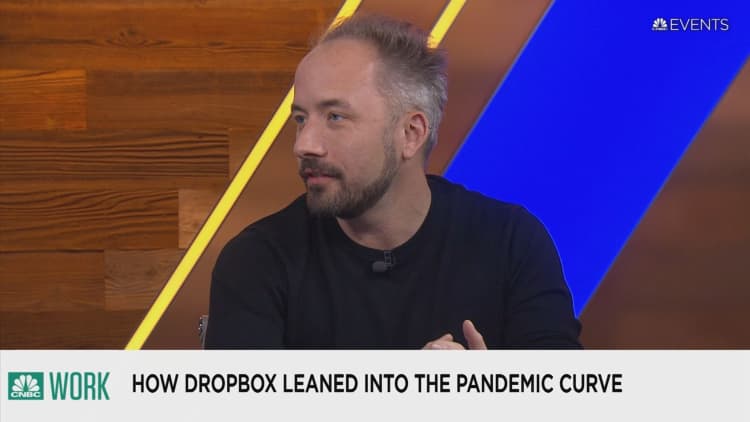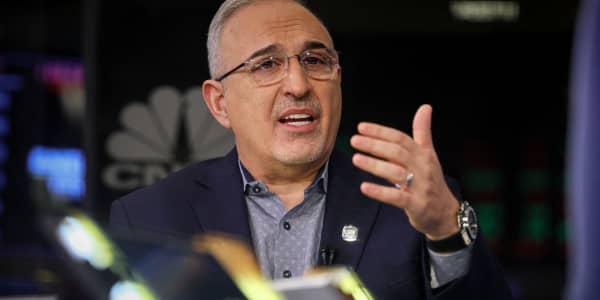If companies want to attract and keep the best employees, giving them flexibility in how and where they work is the key.
Despite a growing number of companies requiring workers to be in the office a set number of days each week, three members of CNBC's Workforce Executive Council said at the recent CNBC Work Summit that they are choosing to give employees the choice of how often they come into the office.
Iesha Berry, chief diversity and engagement officer at DocuSign, said the company decided to take this approach after realizing that employee autonomy is a competitive tool. "In tech it's so competitive to get the right talent," she said. "We're in a new era of work and we're allowing people to do that work where they're most productive."
Tiffany Monroe, chief people and culture officer for H&R Block, said that as the company thought about a return-to-office strategy it polled the workforce. What the company heard was that while workers liked being with colleagues, they valued flexibility during the pandemic.
As a result of this feedback, Monroe said H&R Block has a hybrid arrangement that "encourages people to be in the office Tuesday through Thursday, but it's absolutely up to them. It's helping us attract and retain talent."
DJ Casto, chief human resources officer at financial services firm Synchrony, said "flexibility and choice are the new currency" in work. Over the past two years, as employees worked from home, Synchrony was able to focus on outcomes, not where workers were located. He cited a recent Microsoft study that highlighted the tremendous disconnect that still exists between workers and managers when it comes to productivity and remote work.
Close to 90% of workers in the survey report that they are productive at work and evidence of that —average hours worked, the number of meetings taken each week — continues to increase. Yet 85% of bosses say hybrid work makes it difficult to be sure that employees are actually being productive.
In the report, Microsoft called this tension "productivity paranoia" — a fear among leaders that their remote and hybrid employees aren't being as productive as they would be in the office, even though they're working more hours.
Building trust
Casto told CNBC correspondent Steve Kovach during the virtual event that Synchrony is countering this disconnect by focusing on building a culture of trust with employees. "We do quarterly connects with our workforce and I've been focused on conversations with employees around any obstacles they're facing," he said. Those include how employees are managing to balance home responsibilities and work, the need for coaching and whether there are obstacles at home that are keeping them preoccupied.
"It's about asking 'how can I help?'' Casto said. "What can we do to make it easier for them to do their job?"
Offering flexibility and choice in how work gets done is helping these companies with their diversity, equity and inclusion efforts as well. Berry said HR at DocuSign now has the tools to think about DEI at every step of the hiring process. And by enabling talent to stay in locations even where DocuSign doesn't have offices, it's opened up a diverse talent pipeline that the company might not otherwise have had.
Monroe said the company is attracting and retaining more diverse talent by placing a greater emphasis on supporting employees through a broader range of life and family situations. Creating a more holistic approach to benefits — what Monroe called "Belonging at Block"—results in a culture where workers "can bring their full and authentic selves to work," she said.
None of the HR leaders have dismissed or downplayed the importance of connection and interaction among their workers. If anything, they're working harder to make those in-person gatherings more meaningful when they do happen. Says Monroe: "Connection among our employees is really important, and we do global town halls. But they have to have intention and purpose for employees to get the most out of them."
To join the CNBC Workforce Executive Council, apply at cnbccouncils.com/wec.







